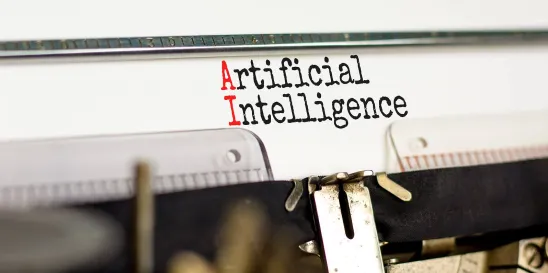With the rapid development of artificial intelligence (AI), governments and multinational organizations have sought to regulate this technology to safeguard against perceived risks related to data privacy, disinformation, inequality, and discrimination. President Joe Biden recently issued an executive order addressing AI, which has a primary focus on safety and security.
A look at AI regulation efforts across the world can serve to contextualize President Biden’s executive order into the global framework of AI regulation.
The United Nations’ AI Advisory Board
In August, the United Nations announced the creation of an AI Advisory Board, calling for nominations of interdisciplinary experts to serve on this panel. In announcing the launch of this board, Secretary-General António Guterres highlighted the potential for AI technologies to assist in “predicting and addressing crises to rolling out public health services and educational services…leapfrogging outdated technologies and bringing services directly to people.” He cautioned against the concentration of these capabilities in “a handful of companies and countries,” which could exacerbate existing inequalities and proliferating misinformation, disinformation, and discrimination.
The AI Advisory Board aims to issue an interim report on the use of AI by the end of 2023, followed by a final report in mid-2024. This program will be capped off at the Summit of the Future in September 2024, which will focus on “readying ourselves for a future that is rife with risks but also opportunities.”
China’s AI Governance Initiative
While the Chinese government has been implementing AI for its domestic social credit program, it announced its Global AI Governance Initiative at the October Belt and Road Forum its Global AI Governance Initiative. Under the direction of China’s Cyberspace Administration, this Initiative seeks to gain support from other counties in calling for the adoption of AI governance that fosters mutual respect, equality, and mutual benefit from the capabilities that AI offers. The Initiative calls all countries to “respect other countries’ national sovereignty” and “oppose using AI technologies for the purposes of manipulating public opinion, spreading disinformation, intervening in other countries’ internal affairs, social systems and social order, as well as jeopardizing the sovereignty of other states.” It was not made clear what steps China will take to gain support for this Initiative.
The EU’s AI Act
In April 2021, the European Union proposed the Artificial Intelligence Act, which still needs to go through negotiations with certain EU institutions and member states before it is enacted. The goal of this Act is to “ensure a high level of protection of health, safety, fundamental rights, democracy and rule of law and the environment from harmful effects of [AI].” The Act bans certain AI uses (real-time facial recognition in public), requires assessment before certain other applications (management of critical infrastructure), and implements disclosure requirements.
Other Countries’ Efforts
In certain other countries, where there has not been explicit regulation or legislation concerning AI, companies still need to be cautious of existing laws or guidance documents. For example, the Australian government has highlighted the fact that existing technology and privacy laws are applicable to AI. Additionally, Japan has issued nonbinding guidance documents that aim to limit “impairment of fairness or safety issues.”
Brazil has proposed a comprehensive regulation (text in Portuguese) that seeks to protect human rights and privacy by creating a new regulatory body to enforce the law and establishing civil liability and disclosure obligations for AI providers and operators.
Peru adopted Law No. 31814 (text in Spanish), which recognizes the use of AI to improve public services, education, health, and justice as a national interest. This law vests the President of the Council of Ministers with the power to develop data infrastructure and train individuals on the use and development of AI, as well as adopt guidelines to ensure transparent AI systems.
Chile proposed a law that is based on the EU’s AI Act and tiers AI applications into high-, medium-, and low-risk categories.
In February 2023, South Korea’s National Assembly proposed the Act Fostering the AI Industry and Establishing a Foundation for Trustworthy AI (text in Korean). This Act has two main goals: (1) fostering the growth of AI technology; and (2) protecting data and privacy right to build trust in AI. In an effort to help grow the AI industry, the Act allows for the development of AI technologies without government pre-approval. Yet, for certain “high-risk AI,” those that directly affect privacy and safety, the Act establishes ethical principles that developers must follow.
U.S. State-Level Enactments
Legislation that seeks to impact the use of AI has been proposed or enacted in over 20 states, including: California, Colorado, Connecticut, Illinois, Indiana, Maine, Maryland, Massachusetts, Minnesota, Montana, New Hampshire, New Jersey, New York, Oregon, Pennsylvania, Rhode Island, South Carolina, Tennessee, Texas, Vermont, Virginia, Washington, and West Virginia.
While these laws vary in their scope, they predominately fall into two categories: (1) safeguarding individuals’ privacy; and (2) requiring safeguards to ensure that AI does not discriminate on the basis of a protected trait – i.e., age, sex, and race – in areas such as insurance policy premiums and interest rates. For example, Montana enacted a law that creates transparency requirements around AI generation of consumer profiles that rely on personal information. Additionally, in 2021, New York City passed, and in August 2023, New York State proposed laws regulating how AI can be used in hiring decisions.





 />i
/>i

